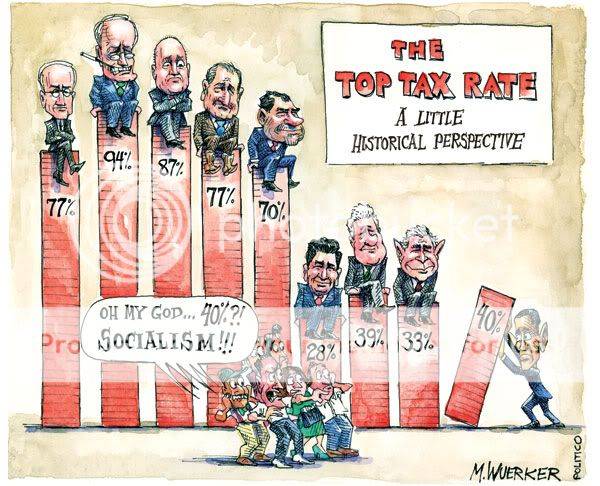Thesis: Whether the government should determine if an individual or a corporation or any other entity has made enough money.
So what do you think? Should there be a limit on how much money somebody is allowed to make? If so, what should that limit be? If not, why?
Obama to Wall Street: I do think at some point, you have made enough money.
Breitbart.tv Obama to Wall St.: ‘I Do Think at Some Point You’ve Made Enough Money’
Rebuttal via Thomas Sowell:
. . . .The key word in this statement, made by President Barack Obama recently, is "you." There is nothing wrong with my deciding how much money is enough for me or your deciding how much money is enough for you, but when politicians think that they should be deciding how much money is enough for other people, that is starting down a very slippery slope.
Politicians with the power to determine each citizen's income are no longer public servants. They are public masters. . . .
. . . .Ida Tarbell's famous muckraking book, "History of the Standard Oil Company," said that Rockefeller "should have been satisfied" with the money he had acquired by 1870, implying greed in his continued efforts to increase the size and profitability of Standard Oil. But would the public have been better off or worse off if Rockefeller had retired in 1870?
One of the crucial facts left out of Ida Tarbell's book was that Rockefeller's improvements in the oil industry brought down the price of oil to a fraction of what it had been before.
As just one example, oil was first shipped in barrels, which is why we still measure oil in terms of the number of barrels today, even though oil is seldom -- if ever -- actually shipped in barrels any more. John D. Rockefeller shipped his oil in railroad tank cars, reducing transportation costs, among other costs that he found ways of reducing.
Thomas Sowell
So what do you think? Should there be a limit on how much money somebody is allowed to make? If so, what should that limit be? If not, why?



